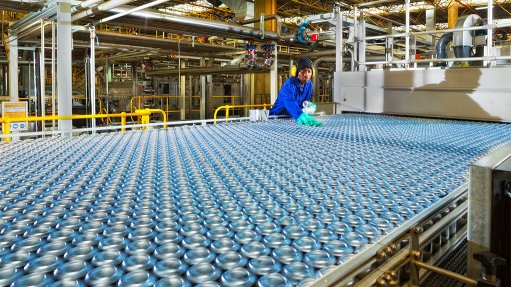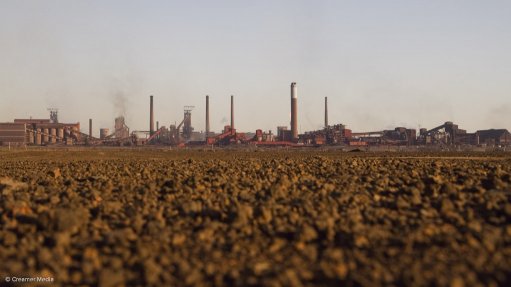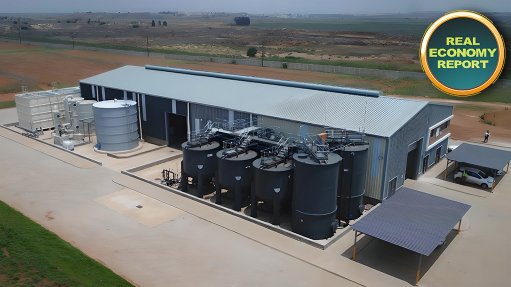Automotive manufacturers must drive home importance of AGOA to the economy
Amith Singh – National Manager for Manufacturing at Nedbank Commercial Banking
Despite a weaker currency, pessimism over rising fuel costs and ongoing economic challenges, South Africa (SA)’s automotive manufacturing sector is primed for more growth under the African Growth and Opportunity Act (AGOA).
This could spell good news for manufacturers in the country, meaning that there is not only an opportunity for job certainty in this sector, but also handsome business export opportunities, which will benefit the country.
Optimism is fuelled by the fact that SA was the continent’s largest beneficiary of AGOA in 2022, exporting a wide range of products, including vehicles manufactured in the country, to the US.
AGOA is a preferential trade programme that the US offers to 49 sub-Saharan African countries, but questions remain around its future. Few would disagree that the trade-friendly legislation signed into law in 2000 by former president Bill Clinton has been mutually beneficial to SA and the US.
Last year South African exports to the US amounted to R178 billion and, showing that it is not a one-way street, US exports to SA amounted to R134 billion in 2022.
Apart from ensuring a pipeline for American products, AGOA has mutual benefits for the export sector and gives a strong nod to investment in Africa: A new research report on AGOA by the Automotive Industry Export Council and the Automotive Business Council (naamsa) found that investment expenditure by original equipment manufacturers rose from R1,56 billion in 2000 to R2,08 billion in 2001 when AGOA was implemented.
The report also says that SA has accounted for more than 99% of the African automotive sector’s exports to the US since AGOA's inception. Among the many reasons, this is in part due to the commitment – and solidity – of players in the local manufacturing industry, no doubt buoyed by the fact that SA enjoys access to this key automotive export market: Last year total automotive exports to the US amounted to R24,1 billion, while automotive imports from that country amounted to R18,3 billion.
Unsurprisingly, manufacturers in the country have been urged to boost efficiencies of output and operations to ensure that, despite the topsy-turvy nature of the currency, maximum benefits are extracted from such growth opportunities.
The National Association of Automotive Component and Allied Manufacturers (NAACAM), recognised as the voice of the South African automotive sector, notes in its 2023 outlook that the same challenges that confronted the economy and the automotive industry in 2022 have carried over into 2023. Businesses are faced with numerous challenges, including supply chain bottlenecks, a global economic slowdown, a worsening energy crisis, and protracted geopolitical turmoil.
In addition, according to NAACAM, the United Kingdom and the European Union ban on the sale of new fuel-propelled vehicles from 2030 and 2035 respectively, as well as imposing carbon border taxes on imports with significant associated compliance costs, will have global ramifications.
The manufacturing sector undoubtedly remains a positive window of opportunity to unlock new opportunities – notably the emergence of the energy-efficient electric car.
However, given the current interest rate cycle and not forgetting the heavy fuel increase that will hurt consumers and ultimately the economy, Nedbank Commercial Banking is mindful of the manufacturing sector's pain points.
Expert solutions coupled with adequate support to enable clients to better navigate the current difficulties facing South Africa are a given. Some may disagree with an optimistic approach but, with the automotive trade surplus flush at R19,6 billion in 2022, the manufacturing sector is crucial to the well-being of the country.
Therefore, the future sustainability of AGOA, which will end on 30 September 2025, is a must for the automotive manufacturing sector.
For more information email us at manufacturing@nedbank.co.za.
Singh is Nedbank Commercial Banking’s national manager for the manufacturing sector. He holds a degree in business management from the University of Cape Town, a postgraduate degree in sales management, and is a qualified Neethling Brain Institute practitioner. He has been in banking for 20 years.
https://business.nedbank.co.za/commercial-banking/industry/manufacturing.html
Comments
Press Office
Announcements
What's On
Subscribe to improve your user experience...
Option 1 (equivalent of R125 a month):
Receive a weekly copy of Creamer Media's Engineering News & Mining Weekly magazine
(print copy for those in South Africa and e-magazine for those outside of South Africa)
Receive daily email newsletters
Access to full search results
Access archive of magazine back copies
Access to Projects in Progress
Access to ONE Research Report of your choice in PDF format
Option 2 (equivalent of R375 a month):
All benefits from Option 1
PLUS
Access to Creamer Media's Research Channel Africa for ALL Research Reports, in PDF format, on various industrial and mining sectors
including Electricity; Water; Energy Transition; Hydrogen; Roads, Rail and Ports; Coal; Gold; Platinum; Battery Metals; etc.
Already a subscriber?
Forgotten your password?
Receive weekly copy of Creamer Media's Engineering News & Mining Weekly magazine (print copy for those in South Africa and e-magazine for those outside of South Africa)
➕
Recieve daily email newsletters
➕
Access to full search results
➕
Access archive of magazine back copies
➕
Access to Projects in Progress
➕
Access to ONE Research Report of your choice in PDF format
RESEARCH CHANNEL AFRICA
R4500 (equivalent of R375 a month)
SUBSCRIBEAll benefits from Option 1
➕
Access to Creamer Media's Research Channel Africa for ALL Research Reports on various industrial and mining sectors, in PDF format, including on:
Electricity
➕
Water
➕
Energy Transition
➕
Hydrogen
➕
Roads, Rail and Ports
➕
Coal
➕
Gold
➕
Platinum
➕
Battery Metals
➕
etc.
Receive all benefits from Option 1 or Option 2 delivered to numerous people at your company
➕
Multiple User names and Passwords for simultaneous log-ins
➕
Intranet integration access to all in your organisation























